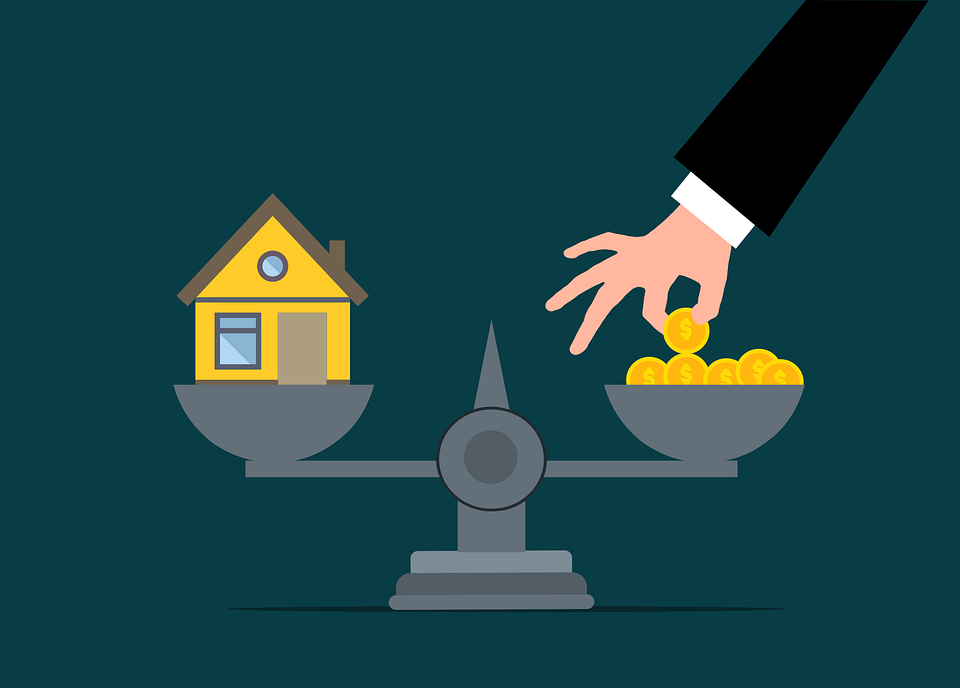Image by mohamed_hassan, licensed under Pixabay
Q: Noob questions about down payments, asking, appraisal
Why make an offer over asking price, and what does that mean, specifically regarding appraisal? Like, you’re not gonna get a mortgage for over the appraisal price. So making a “strong offer” means what, you’ll pay the difference up front, right away? Like handing them a big stack of cash? Also what’s the difference in offering to go over asking, vs going above appraisal?
A: There is a lot to dive into here! Let’s tackle each question:
Why make an offer over asking price
Because you want the house more than the other buyers, and they’re all willing to pay over asking price too.
what does that mean, specifically regarding appraisal?
The asking price and the appraisal have essentially no relation to each other. The asking price is a number that the seller thinks will generate high activity and interest on the market, hopefully attracting multiple offers that all escalate higher. The appraisal (which is ordered by your lender during the closing period, after the seller accepts your offer) looks at other sold listings and decides “Okay, based on the price of other houses, how much is THIS ONE worth? Is it worth what this buyer is offering to pay for it?”
Like, you’re not gonna get a mortgage for over the appraisal price. So making a “strong offer” means what, you’ll pay the difference up front, right away? Like handing them a big stack of cash?
There are actually a few ways to handle a low appraisal if you’ve waived your ability to renegotiate with the seller. First of all, you can request a Reconsideration of Value from your appraiser. You will need to provide them with data that supports a higher value. The appraiser may or may not agree with you. If that doesn’t work, you can get a new appraisal (you may have to switch lenders to order a new appraisal). You will pay for a second appraisal and it will probably delay closing, but I have seen super low appraisals come back right at contract price the second time around.
If you don’t want to do that: yes, you can bring enough extra cash to cover the difference (this is paid at closing along with the rest of your downpayment and closing costs). It is still equity in your house, but the bank doesn’t immediately recognize it when calculating your loan-to-value (LTV) ratio. They calculate LTV using the appraised value. If you don’t have enough extra cash to cover the gap, you can instead pull that cash out of your original downpayment and increase your LTV. Maybe that pushes you under 20% down, maybe that means paying some PMI for a while, but usually buyers decide it’s still worth it if it means winning the house.
Also what’s the difference in offering to go over asking, vs going above appraisal?
Let’s look at an example: A house is listed at $500k (asking price). You make an offer over asking and your offer is accepted at $600k (contract price). The appraisal comes back lower than contract price, at $550k (appraised value). If you:
- (A) had an appraisal contingency on your offer: you can renegotiate price with the seller and/or terminate the transaction and get your earnest money back. This is not seen as competitive so your original offer was less likely to be accepted.
- (B) offered to pay Y gap over a low appraisal: the seller can either accept $550k + Y as the new price, or they can try to negotiate a new price that is more than $550k + Y. If you can’t reach an agreement, you can terminate the transaction and get your earnest money back.
- (C) waived your appraisal contingency altogether: you have a $50k gap between the appraised value and the contract price. It is up to you to either cover the gap outright, or increase your LTV (get a bigger loan) to allow you to cover the gap. You do not have the option to renegotiate. If you can’t cover the gap and therefore can’t close on the sale, the seller is entitled to keep your earnest money as damages.
In all of the above scenarios you offered over asking. Both B and C would be considered potentially “offering above appraisal.” Keep in mind that the vast majority of appraisals do come back at value – the differences in the above scenarios only matter if the appraisal comes back low. But when you submit your offer: A will be seen as weak, B will be seen as stronger, and C will be seen as strongest. If you are an A or B buyer and a competing buyer chooses option C, they will probably win.
It’s also worth noting that if you don’t offer to waive appraisal (or cover a gap), then often it doesn’t matter if you had the highest offer. The highest price won’t matter if the buyer can renegotiate it down later, after a low appraisal. That’s why a seller might choose a lower offer with better terms. A $575k offer with no appraisal contingency is guaranteed to stay at $575k. A $600k offer with an appraisal contingency might end up much lower.
 Facebook
Facebook
 Twitter
Twitter
 Pinterest
Pinterest
 Copy Link
Copy Link
